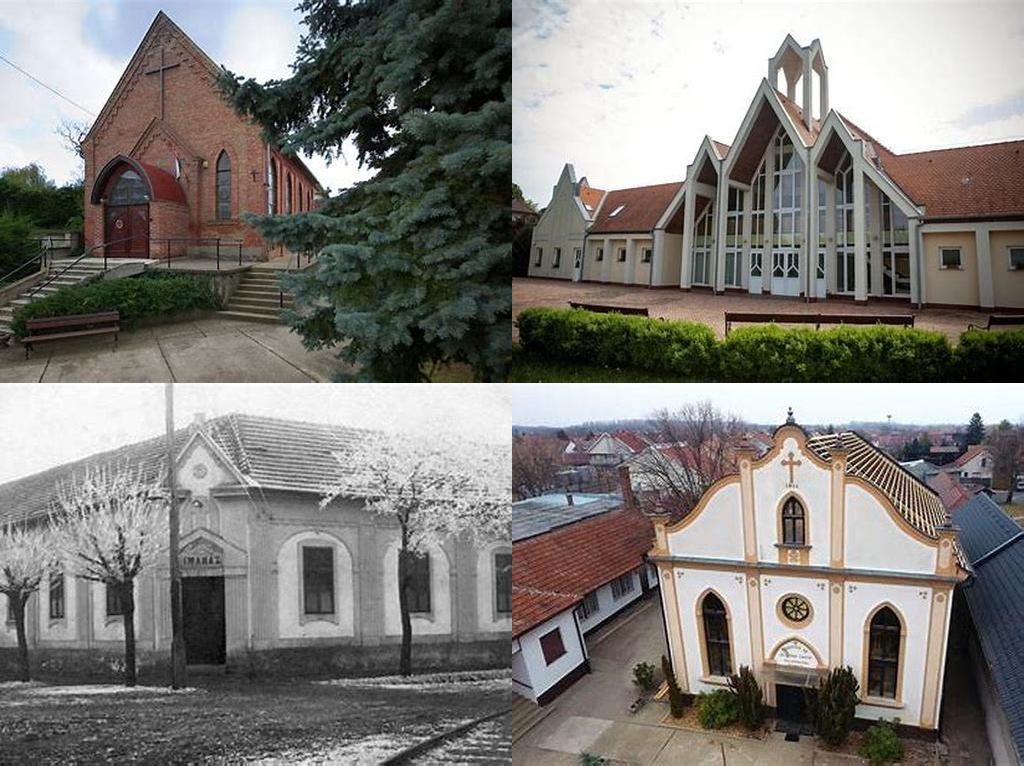
Baptista imaház isn’t the sort of destination that flashes from glossy guidebooks, but there’s something quietly captivating about this understated haven. Tucked into a gentle corner of Debrecen, Hungary’s “Calvinist Rome,” the prayer house embodies a story of resilience, faith, and changing Hungarian society—a chronicle written not on grand facades, but in the softer details that reward anyone with a taste for history off the beaten path.
When you approach the Baptist Prayer House, its simple yet elegant appearance might not immediately shout for your attention. Unlike ornate baroque cathedrals, the Baptista imaház is thoughtfully unpretentious—whitewashed walls, a slender steeple, and well-kept gardens where birds gossip gently in the morning. The original foundations of the current building date back to 1894, a time when Debrecen’s spiritual tapestry began to diversify beyond its Calvinist roots. The first Baptist congregation was formed under the guidance of Sámuel Kiss, a name echoing through the annals of Hungarian Protestantism. Against a prevailing current of suspicion and skepticism toward “new” denominations, these early Baptists carved out a sacred space for their faith, building not just a church, but a safe meeting place—an “imaház,” or house of prayer.
Stepping inside, visitors find themselves embraced by serenity unfettered by pomp. The Baptists have always been pragmatic about the purpose of their places of worship: to foster community and dialogue, not to awe with riches. Wooden pews are bathed in soft natural light. The simplicity reflects Baptist principles—no gilded icons or kaleidoscopic stained glass, only a gentle sense of welcome. Occasionally, you might find volunteers ready for conversation, happy to recount the role of the prayer house during World War II, when it provided refuge for displaced families and hosted secret meetings of resistance. These stories surface not from pamphlets, but from the living memories of the congregation, passed from one generation to the next.
Some visitors are surprised to learn how much the Baptist Prayer House has contributed, quietly and steadily, to Debrecen’s cultural and humanitarian landscapes. In the mid-20th century, when Hungary’s religious life was policed by both fascism and communist atheism, the imaház was never just about worship. It became a node for local charity, a venue for amateur choirs, and even—during the oppressive years—a subtle symbol of dissent. The interior, minimally adorned, once buzzed with children’s laughter during clandestine Sunday schools, while adults found flickers of hope in community outreach programs. The resilient legacy of those who led these efforts—the likes of Lajos Dobszay, a tireless pastor and educator—can be stumbled upon in handwritten hymnals and faded group photographs tucked away in the church’s modest archives.
Today, travelers are welcome at the Baptista imaház whether they come for a quiet moment of reflection or to glimpse the microhistories of Debrecen. The prayer house opens its doors for Sunday services, community events, and sometimes—on special occasions—ecumenical gatherings with other Christian denominations. There’s a certain cordiality here that feels like a throwback: it’s not unusual to be offered a seat at a table after the service, with homemade pastries and the sort of slow, meaningful conversation that lingers long after the coffee runs out.
If you walk along Nagytemplom and find yourself weary of monumental grandeur, wander a few streets down to discover where faith in Debrecen has been quietly nurtured for over a century. The Baptista imaház is neither an opulent museum piece nor an attention-hungry landmark. It is, instead, a living chapter in the city’s story—a place where architecture and memory, tradition and openness, all fold gently into each other. Visitors leave with a sense that they’ve encountered both the roots and new shoots of Hungarian spiritual life—a reminder that sometimes, the most profound encounters come in the calmest of settings.





